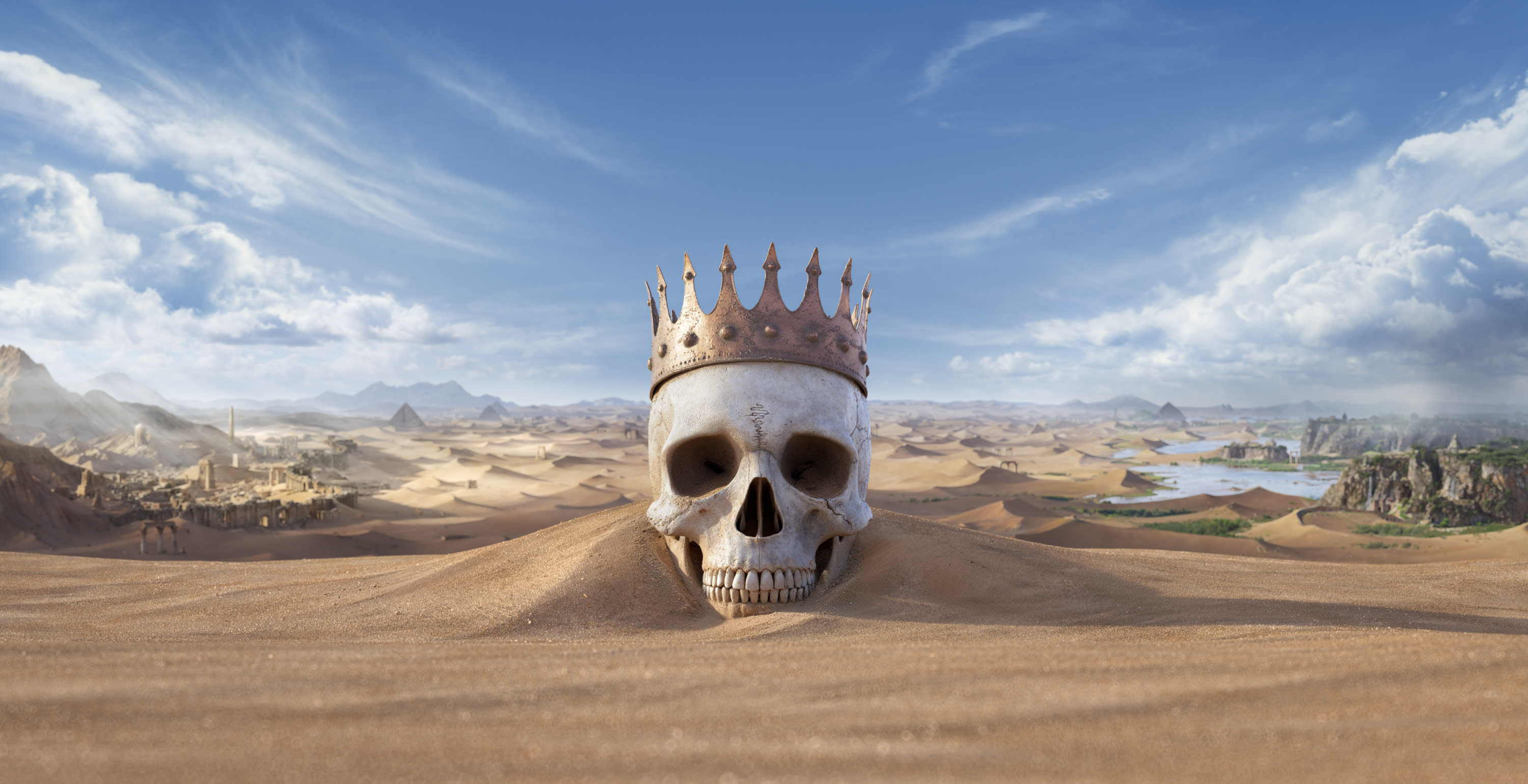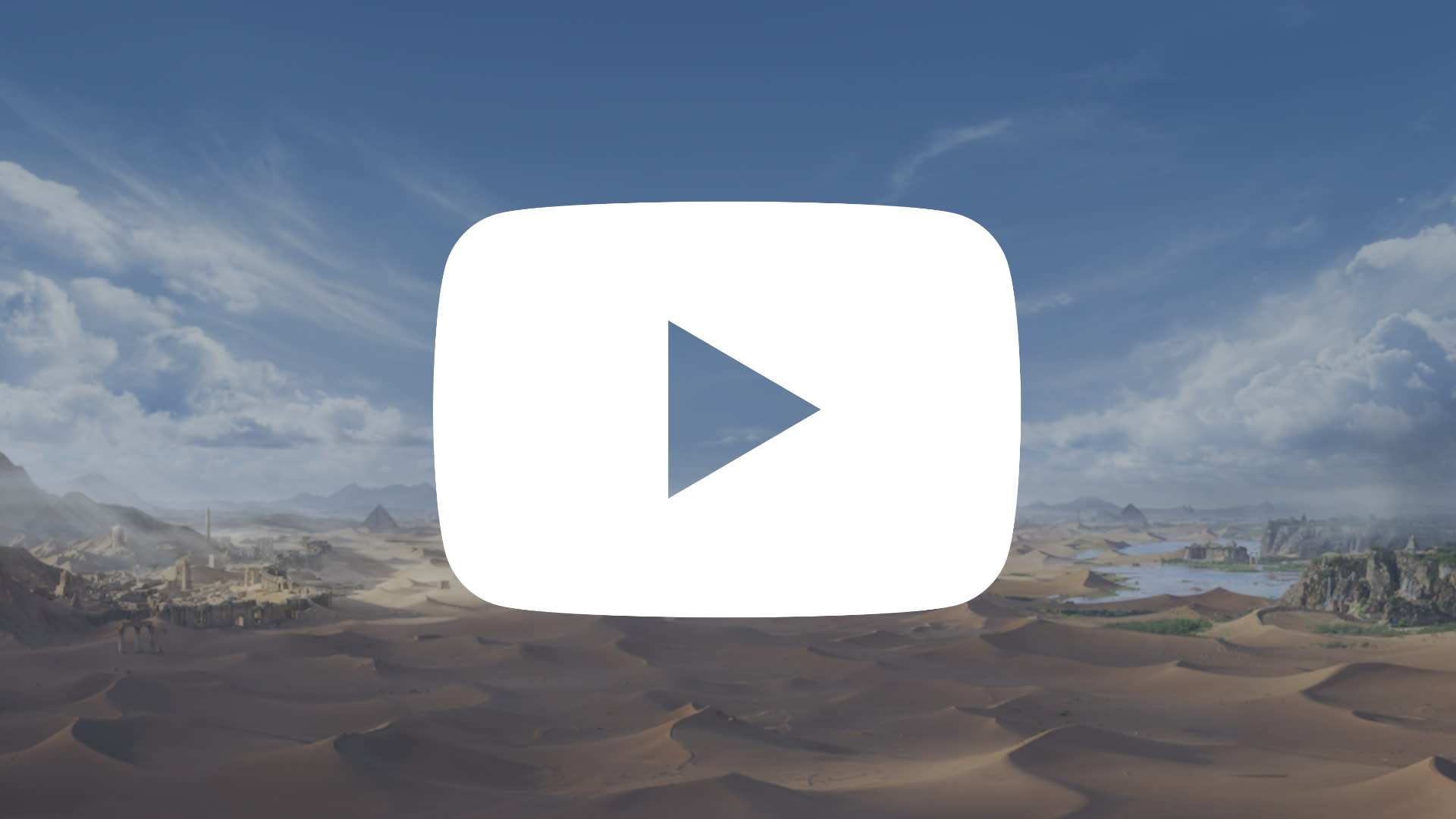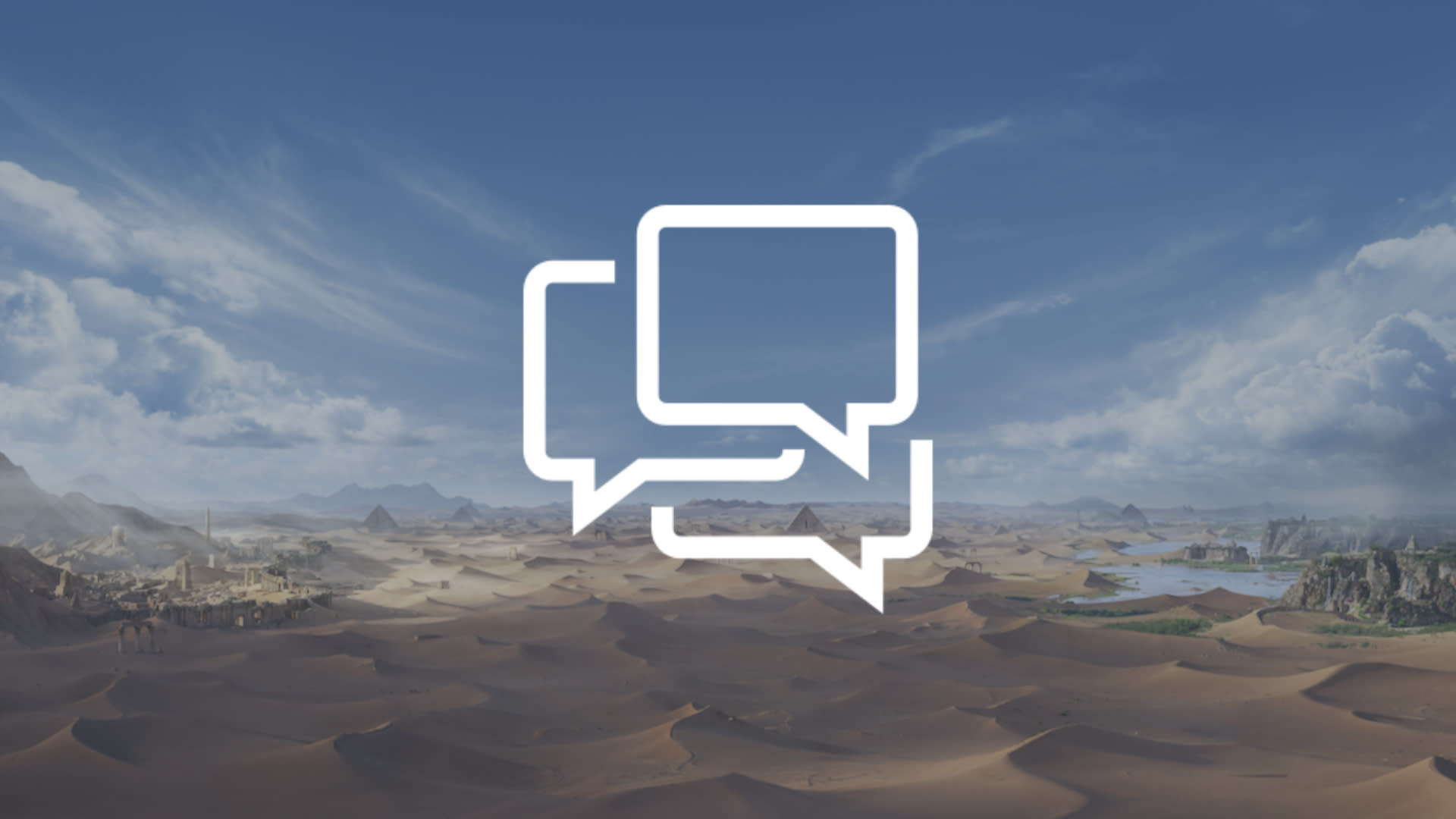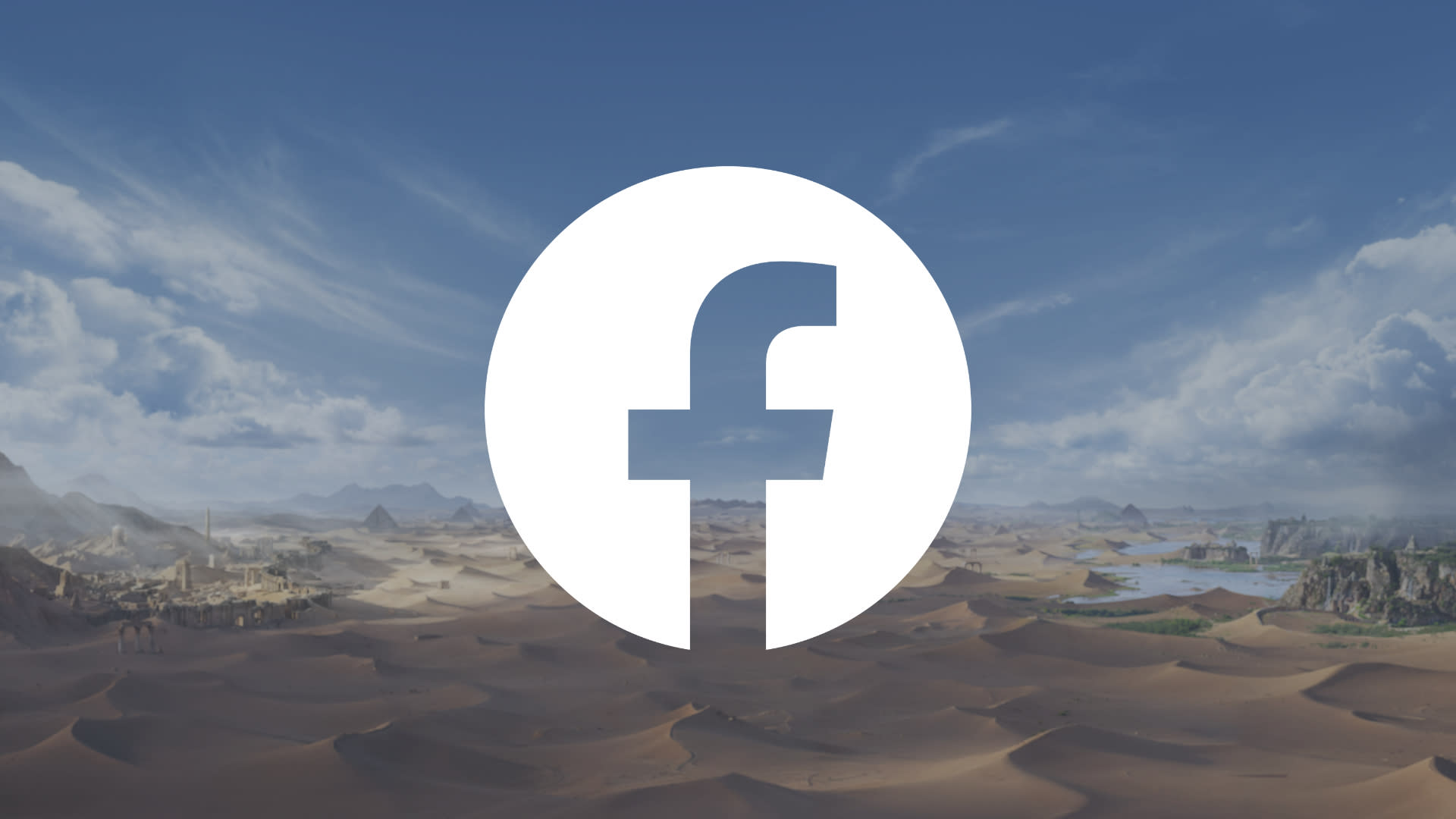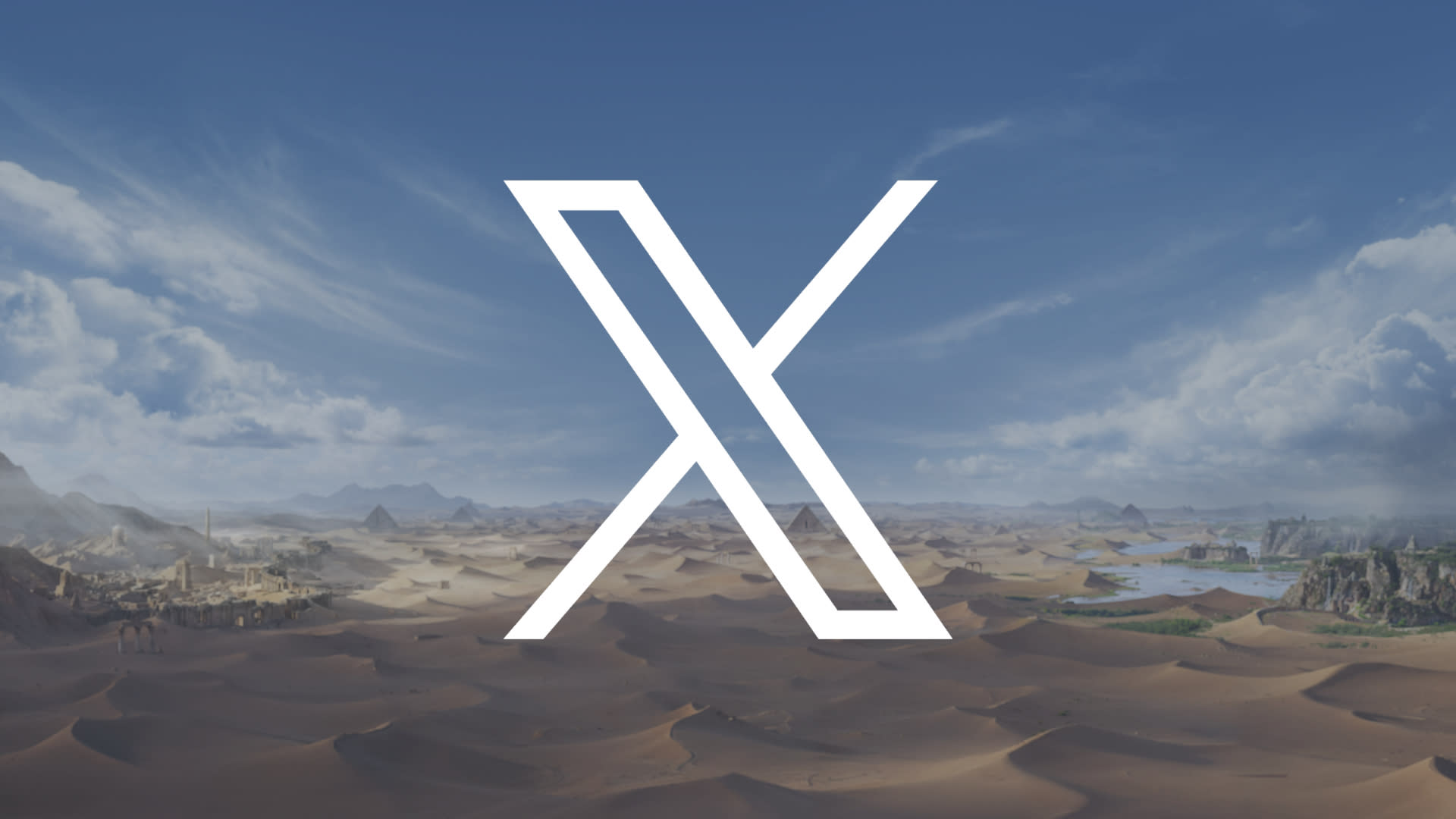Developer Diary | World & Map
Hello! I’m Robert “Xemu” Fermier, the lead programmer and co-designer of Millennia. Welcome to our second Millennia design diary! If you want to learn more about the game overall and our team at C Prompt Games, take a look here: Dev Diary #1, and be sure check out the exciting first trailer for the game.
Millennia is a huge game, packed with content and gameplay systems, but a good place to start explaining it all is with one of the most central pieces of the game – how you claim territory, grow your Nation, and explore the map.
Regions
At the start of the game, you control a single Region. Regions are the most vital element of the game economy – they define your borders, allow you to put your people to work, and let you build Units and Buildings. The Capital at the heart of a Region will feel pretty familiar to players comfortable with other 4X games, particularly at the start. Grow your Region’s population to work more tiles, collect more resources, and become an industrial powerhouse.
At a high level, the Region’s Population determines how many workers you can assign, while the territory controlled by the Region determines what those workers can be assigned to. Early on, many of your workers will be “foraging”, gathering from the land directly. This type of gathering is 1:1, so if you have 3 Forests, you can assign up to 3 workers to foraging in those Forests.
This is fine for getting started, but to really get your economy rolling you will want to build Improvements, such as Farms and Hunting Camps … or Oil Wells and Computer Factories when you reach the more advanced Ages. Improvements dramatically boost the value of workers in a Region, providing Goods that are worth significantly more than what foraging alone can generate (of course if you have the right National Spirit perhaps there are some alternative strategies you can find…).
Regions can also be strengthened by constructing “Capital Buildings”, which are permanent upgrades to the Region. These represent infrastructure, monuments, and other ways to improve your Region as a whole. Like Improvements, there are a huge range of these, providing additional resource income, army enhancements, and other bonuses.

Growing your Nation by gaining more Nations involves Vassals. These are similar to Regions, but they operate mostly on their own. They will grow over time and claim parts of the map, and they contribute some of their income to you each turn as tribute. You don’t have to manage the Needs or worker assignments of a Region, and they also don’t incur any of the costs associated with a Region, so they can be a very useful tool in “painting the map” without slowing down your economy. When the time is right, you can convert a Vassal into a Region to utilize its potential more fully.
We will talk a lot more about how Vassals, Needs, Improvements, and Goods work in a future diary, as there are a lot of interesting gameplay details to cover there.
Towns
In addition to settling new Regions, you also settle new Towns. Towns are part of a Region, smaller population centers that boost the central Capital. Each Town also influences the expansion of a Region’s borders, so they present a lot of choices for defining the “shape” of a Region. Do you want to steer your Region towards some vital resources, or to claim disputed territory from another Nation? Do you try to maximize the total area your Region can control, or focus on a more compact, easily defensible setup? Each game will require you to adapt your strategic positioning differently.
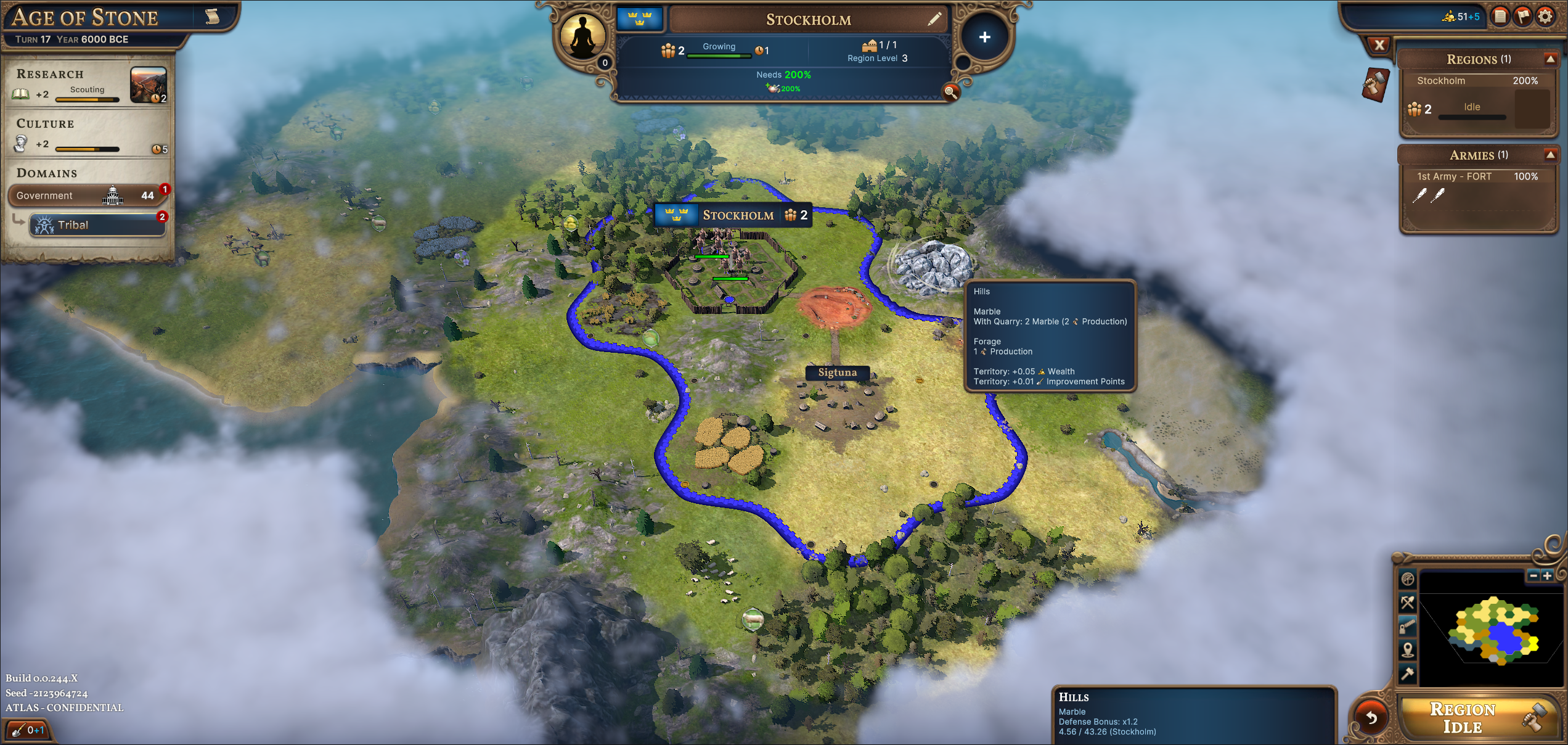
Enemies may try to raid your Towns. If a Towns falls, your Region can lose territory that was controlled by the Town. Towns also contribute Militia units to the Capital, bolstering defenses there when attacked, which creates some interesting tactical choices when assaulting an enemy Region. When planning your offense, do you chip away at their Towns to weaken them, or bypass the Towns and strike for the Capital directly?
Initially, your Towns will generate more Wealth for the region based on how many Improvements you have built nearby. As your Nation’s capabilities in civil engineering improve over time, you can expand the Towns to higher levels, increasing this bonus. Towns can also specialize, they can become “mining towns”, “farming towns”, and the like. A Town’s specialization allows it to provide different resources (and require different Improvements). Cleverly using your Towns to accomplish both your strategic and economic goals is very satisfying when you can juggle all the competing interests correctly.
Creating a new Town can only be done with by using a Culture Power, big moments in the growth of your Nation that only happen periodically. While creating a Town is only one of many possible choices of what do with Culture, knowing when and where to expand is an important skill to master in Millennia.
Outposts
Regions and Vassals are not the only way to control territory on the map. You can also send out Pioneers and have them build Outposts. When built, Outposts immediately bring all the tiles in a 1-hex radius under your control. Because they have much looser restrictions of where they can be placed, you can even build them right up against another Nation’s territory to stake a claim. Of course, Outposts are a lot easier to take down than Capitals or even Towns, so make sure you are prepared to defend them against roaming Barbarians and other Nations alike.
The basic Outpost can also build Trade Posts within its territory, allowing you to send valuable Goods to any of your Regions. Because these Trade Posts do not require workers, they can be an extremely potent way to supercharge your economy, particularly when available workers are scarce. Later in the game, more advanced Outpost types become available such as Castles or Missions. These allow you to provide extra abilities to your outposts and can make them a larger part of your overall strategy.
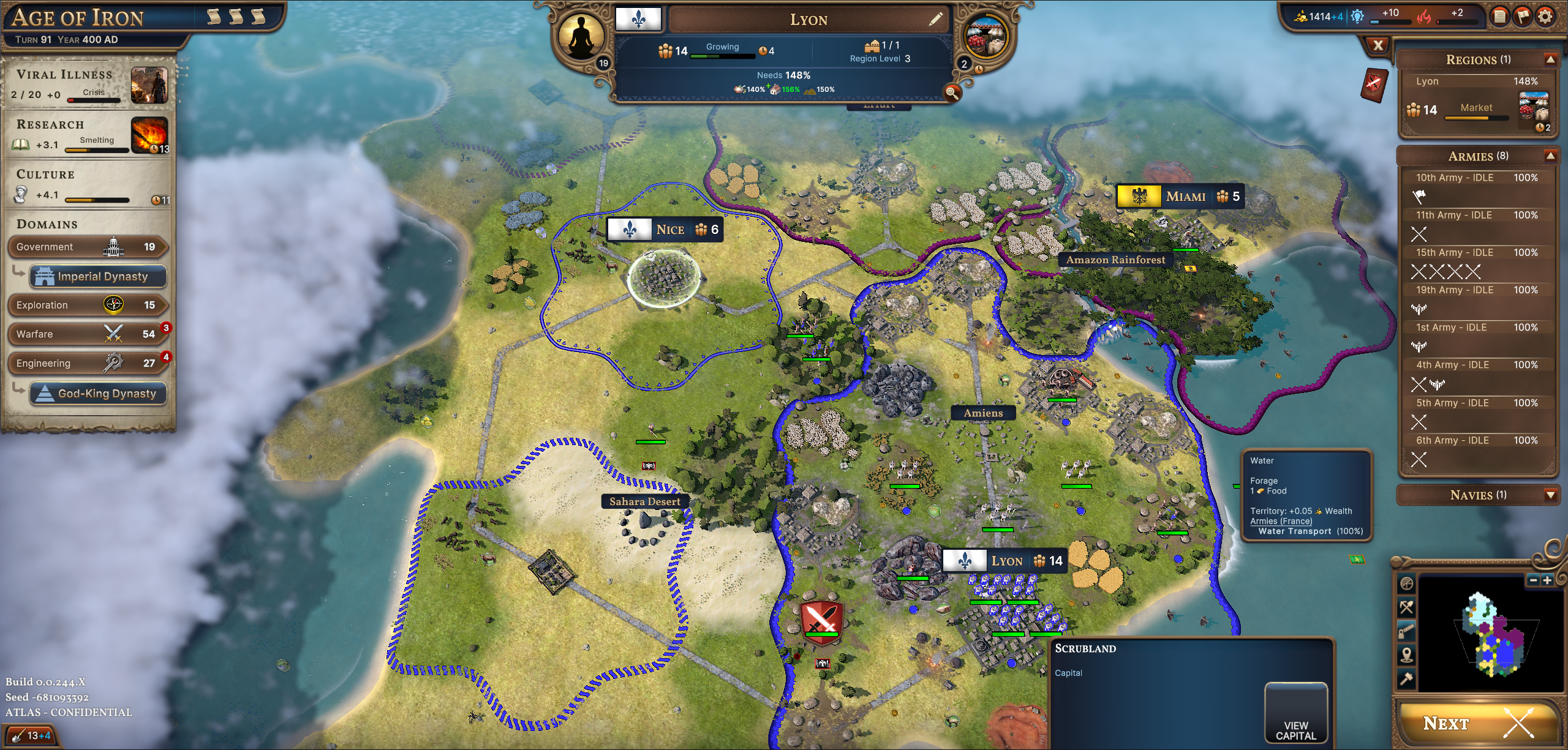
Outposts are also very convenient for establishing a road network through your Nation, as each one you build will automatically connect up with other nearby Outpost, Capitals, and Towns. Of course, just the normal progress of a Region and its Towns are often enough to get you roads where you need to go, but where there is a big gap of terrain to cover, Outposts can quickly get the job done.
Outposts also provide a defensive bonus and increase the healing rate for any of your Armies stationed there. There are also many Powers which let you spawn units at a friendly settlement – which includes Outposts. Using Outposts tactically as forward bases or reinforcement hubs can give you a significant military advantage!
I hope this first look at some detailed mechanics in Millennia has provided a little more insight into some of the basic building blocks of the map-control game. There is a lot more to talk about so stay tuned for our next diary, where we will be talking more about Nations, Governments, and more!
